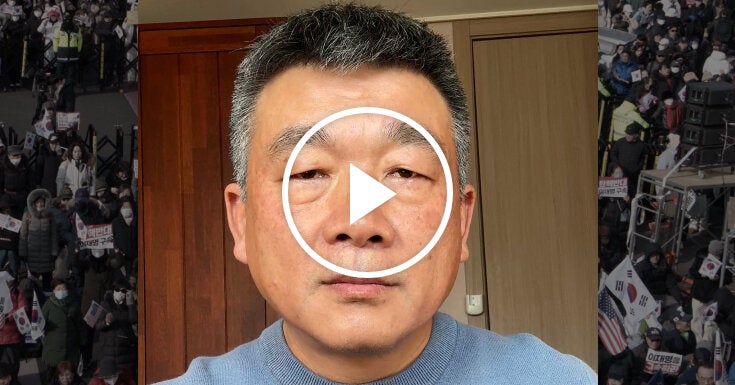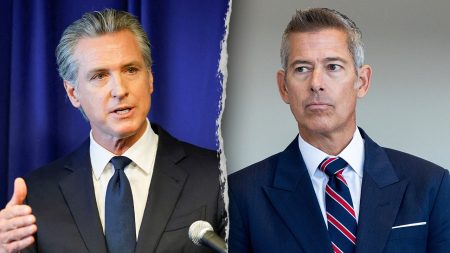Certainly! Let me weave this into a concise 1000-word narrative for you, giving it a conversational and approachable tone while preserving all the important details.
It’s a historic yet heavy day for South Korea. Yoon Suk Yeol, the country’s now-impeached president, has been detained on criminal charges. This marks the first time a sitting South Korean leader has ever faced such an extraordinary turn of events. It’s not every day that we see a head of state go from the highest seat of power to detention. So, how did things get to this point, and what does it say about South Korea as a nation? Let’s unpack it together.
To begin, it’s essential to understand who Yoon Suk Yeol is and why this moment is so significant. Yoon didn’t exactly have a conventional rise to the presidency. He was a career prosecutor, a figure known for his tenacity in going after corruption—ironically, the very thing now associated with his downfall. He campaigned on promises of clean governance, strong values, and accountability, which resonated with many South Koreans. But as we’ve seen, promises don’t always translate into practice.
Events took a sharp turn when allegations against Yoon’s administration started surfacing. Slowly but surely, accusations of misconduct seeped into the public discourse, ranging from abuse of power to financial improprieties. For weeks, the air in Seoul has been thick with tension and anticipation, as investigators relentlessly pursued the trail of evidence. The mounting public pressure, combined with a thorough investigation, eventually led to his impeachment. And now, with his detention, South Korea finds itself grappling with the reality of holding its top authority figure accountable.
Choe Sang-Hun, the Seoul bureau chief for The New York Times, provides thoughtful insight into this situation—helping us connect the dots and truly understand the gravity of what’s unfolding. According to Choe, part of what makes this unprecedented is South Korea’s relatively young democracy. The country transitioned to democratic governance only in the late 20th century, following decades of authoritarian rule. Given this context, South Korea’s vibrant democracy feels tested yet validated by moments like this, where even a president isn’t seen as above the law.
The charges against Yoon Suk Yeol aren’t minor infractions easily swept under the rug. While the details remain under wraps as investigations continue, they involve allegations serious enough to warrant not only impeachment by Parliament but also detention by legal authorities—an exceptionally rare move. It’s a clear message that South Korea is striving to set an example. The rule of law, the country appears to say, applies to everyone equally.
But this story is about much more than the legal and political mechanics of Yoon’s downfall. It’s also about the broader cultural and societal implications. South Korea isn’t new to presidential controversies. Past leaders like Park Geun-hye and Lee Myung-bak have faced legal action after leaving office, but never while still seated as president. Yoon’s case breaks new ground, shattering any illusions of invincibility South Korea’s political elite might have harbored.
For many citizens, this moment embodies both frustration and hope. There’s an undeniable frustration over the perceived betrayal of trust. After all, Yoon’s campaign was built on integrity, and his downfall feels like a deep wound to those who believed in his vision for the country. Yet, there’s also hope in seeing democratic institutions functioning as they should. The fact that investigations unfolded transparently and decisively signals that South Korea’s justice system is maturing. It tells people that their voices matter, and that abuse of power won’t go unchallenged.
The detention also has implications for South Korea’s international image. It positions the country as a democracy willing to self-correct, no matter how painful the process might be. In a region where authoritarianism sometimes overshadows accountability, South Korea’s actions stand out. Choe Sang-Hun notes that this moment could bolster the country’s reputation as a democracy that’s both vibrant and resilient.
Of course, the road ahead isn’t without challenges. Yoon’s detention has led to a mix of reactions across the political spectrum. His supporters argue that the charges might be politically motivated, pointing fingers at his opponents for orchestrating this downfall. On the other hand, many critics see his detention as an overdue reckoning, a necessary step to rebuild trust in leadership. This polarization reflects the deep divisions that exist in South Korean politics and society—divisions that could be further exacerbated in the wake of this historic event.
The implications of Yoon’s detention could ripple far beyond just the political realm. It raises questions about governance, checks and balances, and how South Korea defines accountability moving forward. Will leaders become more cautious and transparent, knowing the risks of falling from grace? Or will it deepen the culture of political retribution, with each administration using legal mechanisms to target its predecessors? It’s a delicate balance the nation will need to navigate carefully.
For now, the country seems to be leaning into its democratic values, as messy and imperfect as the process might be. Whether you see this moment as a crisis or an opportunity likely depends on your perspective. But one thing is certain: it’s a turning point that will leave a lasting mark on South Korea’s political and social fabric.
So, what’s next? Investigators will continue to pursue the case against Yoon Suk Yeol, unearthing evidence and potentially bringing charges to trial. Meanwhile, South Korea finds itself at a critical juncture, with its citizens watching closely to see how this will all unfold. Will there be real accountability, or will political maneuvering dilute the outcome? Only time will tell.
In moments like these, we’re reminded of the complexity of democracy. It’s not always neat or easy, but it’s a system that, at its best, ensures fairness and equality for everyone. For South Korea, Yoon’s detention challenges the nation to uphold the principles it holds dear while grappling with the messy realities of governance. It’s a moment of pain, reflection, and perhaps even growth.
In the end, this chapter in South Korea’s history isn’t just about Yoon Suk Yeol. It’s about the resilience of its people and institutions. It’s about the belief that accountability matters, even when it’s inconvenient or uncomfortable. And it’s about the hope that, through challenges like these, the country can emerge stronger, more united, and more resolute in its commitment to democratic values.
For now, the world watches as South Korea turns the page, wondering what the next chapter will hold.
Let me know how you feel about this tone and structure!











